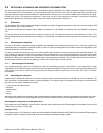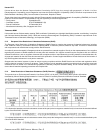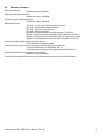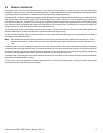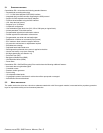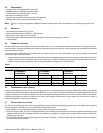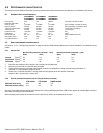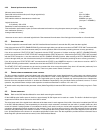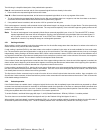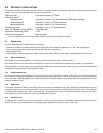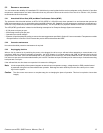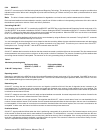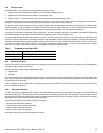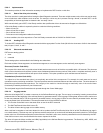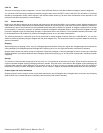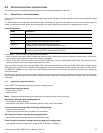CONSTELLATION ES.1 SAS PRODUCT MANUAL, REV. G 11
The following is a simplified description of the prefetch/cache operation:
Case A—read command is received and all of the requested logical blocks are already in the cache:
1. Drive transfers the requested logical blocks to the initiator.
Case B—A Read command requests data, and at least one requested logical block is not in any segment of the cache:
1. The drive fetches the requested logical blocks from the disk and transfers them into a segment, and then from there to the host in
accordance with the Mode Select Disconnect/Reconnect parameters, page 02h.
2. If the prefetch feature is enabled, refer to section 4.5.2 for operation from this point.
Each cache segment is actually a self-contained circular buffer whose length is an integer number of logical blocks. The drive dynamically
creates and removes segments based on the workload. The wrap-around capability of the individual segments greatly enhances the
cache’s overall performance.
Note. The size of each segment is not reported by Mode Sense command page 08h, bytes 14 and 15. The value 0XFFFF is always
reported regardless of the actual size of the segment. Sending a size specification using the Mode Select command (bytes 14
and 15) does not set up a new segment size. If the STRICT bit in Mode page 00h (byte 2, bit 1) is set to one, the drive
responds as it does for any attempt to change an unchangeable parameter.
4.5.1 Caching write data
Write caching is a write operation by the drive that makes use of a drive buffer storage area where the data to be written to the medium is
stored while the drive performs the Write command.
If read caching is enabled (RCD=0), then data written to the medium is retained in the cache to be made available for future read cache
hits. The same buffer space and segmentation is used as set up for read functions. The buffer segmentation scheme is set up or changed
independently, having nothing to do with the state of RCD. When a write command is issued, if RCD=0, the cache is first checked to see if
any logical blocks that are to be written are already stored in the cache from a previous read or write command. If there are, the respective
cache segments are cleared. The new data is cached for subsequent Read commands.
If the number of write data logical blocks exceed the size of the segment being written into, when the end of the segment is reached, the
data is written into the beginning of the same cache segment, overwriting the data that was written there at the beginning of the operation;
however, the drive does not overwrite data that has not yet been written to the medium.
If write caching is enabled (WCE=1), then the drive may return Good status on a write command after the data has been transferred into
the cache, but before the data has been written to the medium. If an error occurs while writing the data to the medium, and Good status
has already been returned, a deferred error will be generated.
The Synchronize Cache command may be used to force the drive to write all cached write data to the medium. Upon completion of a
Synchronize Cache command, all data received from previous write commands will have been written to the medium. Table 10 shows the
mode default settings for the drive.
4.5.2 Prefetch operation
If the Prefetch feature is enabled, data in contiguous logical blocks on the disk immediately beyond that which was requested by a Read
command are retrieved and stored in the buffer for immediate transfer from the buffer to the host on subsequent Read commands that
request those logical blocks (this is true even if cache operation is disabled). Though the prefetch operation uses the buffer as a cache,
finding the requested data in the buffer is a prefetch hit, not a cache operation hit.
To enable Prefetch, use Mode Select page 08h, byte 12, bit 5 (Disable Read Ahead - DRA bit). DRA bit = 0 enables prefetch.
The drive does not use the Max Prefetch field (bytes 8 and 9) or the Prefetch Ceiling field (bytes 10 and 11).
When prefetch (read look-ahead) is enabled (enabled by DRA = 0), the drive enables prefetch of contiguous blocks from the disk when it
senses that a prefetch hit will likely occur. The drive disables prefetch when it decides that a prefetch hit is not likely to occur.



